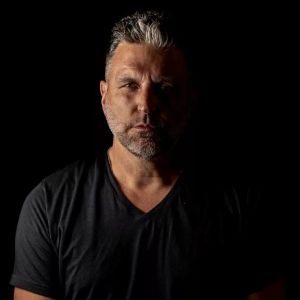








Maui Recovery
Verified Center
This provider's information has been quality-checked by Recovery.com's Research Team for accuracy and completeness, including center verification through appropriate third-party organizations.
Treatment Focus
This center treats substance use disorders and mental health conditions. You'll receive individualized care catered to your unique situation and diagnosis, learn practical skills for recovery, and make new connections in a restorative environment.
Primary Level of Care
Offering intensive care with 24/7 monitoring, residential treatment is typically 30 days and can cover multiple levels of care. Length can range from 14 to 90 days typically.
Treatment Focus
This center treats substance use disorders and mental health conditions. You'll receive individualized care catered to your unique situation and diagnosis, learn practical skills for recovery, and make new connections in a restorative environment.
Primary Level of Care
Offering intensive care with 24/7 monitoring, residential treatment is typically 30 days and can cover multiple levels of care. Length can range from 14 to 90 days typically.
Provider's Policy
Maui Recovery works with most PPO insurance plans which can cover 100% of treatment after deductibles. We do not accept Medicare or Medicaid.
Maui Recovery
Maui Recovery
About Maui Recovery
Nestled amidst the awe-inspiring landscapes of Hawaii, Maui Recovery offers luxury drug and alcohol detox and inpatient care, as well as mental and behavioral health treatment. They understand that every individual’s journey to recovery is unique, which is why they provide care tailored to each client’s needs. With an 8-bed facility overlooking the ocean and a wealth of amenities, including surf therapy, equine therapy, and adventure excursions, their program blends comfort and adventure. For Kama’aina clients, Maui Recovery offers a discounted treatment rate.
Benefit from Diverse Therapies
Maui Recovery’s treatment methods fall into two primary categories: evidence-based and experiential treatments. From cognitive behavioral therapy to motivational interviewing, dialectical behavior therapy to mindfulness-based stress reduction, their evidence-based approaches empower clients to overcome addiction. Each client receives two hours of one-on-one counseling per week and extensive group therapy sessions. Alongside these, they also specialize in experiential therapies that harness the power of radical, new experiences and the natural environment to facilitate self-transformation. Beyond outdoor therapeutic adventures, they incorporate IV vitamin and hydration therapy, and offer spiritual consulting with a Hawaiian Kahuna (or shaman). Their alumni-staffed program ensures a supportive and understanding environment.
Smooth the Path to Recovery with Detox
At Maui Recovery, their detox process is carefully designed to prioritize client comfort and well-being. Under the supervision of their experienced medical team, clients receive personalized care to ease withdrawal symptoms and ensure a smooth transition towards recovery. They combine evidence-based treatments with holistic therapies to address both the physical and psychological aspects of addiction, setting the stage for lasting healing and transformation.
Transition Home with Confidence
As clients prepare to reintegrate into the world, they are equipped to carry forward the resilience and wisdom they’ve cultivated at Maui Recovery. Clients receive personalized roadmaps to ensure continued success and growth. Robust aftercare can include support groups, continued communication with their team, support to find substance-free housing, medication management, and employment and education support.
Enjoy Space for Privacy and Personal Reflection
Maui Recovery’s 8-bed facility, spread across two houses, is designed to feel more like a luxurious vacation home than a treatment center. The private bedrooms featured queen or king beds, and there are en suite bathrooms in most rooms. Clients never feel crowded or intruded upon thanks to the open floor plan, expansive living areas, and sliding glass doors leading to lanais with breathtaking ocean views. Clients enjoy catered meals, a game room with ping pong and foosball, and recliners by the pool.
Highlights from the Center
Highlights
These highlights are provided by and paid for by the center.
Medically Assisted Detox
Beach Access
Private Rooms Only
Executive Treatment
Center Overview
Treatment Focus
This center treats substance use disorders and mental health conditions. You'll receive individualized care catered to your unique situation and diagnosis, learn practical skills for recovery, and make new connections in a restorative environment.
Joint Commission Accredited
The Joint Commission accreditation is a voluntary, objective process that evaluates and accredits healthcare organizations (like treatment centers) based on performance standards designed to improve quality and safety for patients. To be accredited means the treatment center has been found to meet the Commission's standards for quality and safety in patient care.

Maui Recovery
Insurance Accepted
Pricing and Program Length
Estimated Center Costs
The cost listed here ($45,000 - $60,000), is an estimate of program cost. Center price can vary based on program and length of stay. Contact the center for more information. Recovery.com strives for price transparency so you can make an informed decision.




Recovery.com Verified Listing
Recovery.com verified that the name, location, contact information and license to operate for this treatment provider are valid and up-to-date.

Joint Commission Accredited

Licensed

NAATP Member
Recovery.com is an independent, third-party mental health resource. Verification does not imply endorsement and does not guarantee the quality of treatment services.
Meet Your Care Team

Amory Mowrey
Executive Director | MPH | CASAC

Dr. Reza Danesh
Medical Director | M

Aka
Trained Service and Therapy Dog

Lynn Sauler
Therapist

Kate O’Donnell
Client Wellness Director

Blake Rudolf
Facility and Operations Director

Matthew Jenkins
Psychiatric Mental Health Nurse Practitioner

Dimitri Dimopoulos
Client Wellness Associate

Josh
Surf Therapist

Robyn Sarno
Caterer
Your Care Options
Specializations
Alcohol
Using alcohol as a coping mechanism, or drinking excessively throughout the week, signals an alcohol use disorder.
Co-Occurring Disorders
A person with multiple mental health diagnoses, such as addiction and depression, has co-occurring disorders also called dual diagnosis.
Depression
Symptoms of depression may include fatigue, a sense of numbness, and loss of interest in activities. This condition can range from mild to severe.
Eating Disorders
An eating disorder is a long-term pattern of unhealthy behavior relating to food. Most people with eating disorders have a distorted self-image.
Trauma
Some traumatic events are so disturbing that they cause long-term mental health problems. Those ongoing issues can also be referred to as "trauma."
Who We Treat
Older Adults
Addiction and mental health treatment caters to adults 55+ and the age-specific challenges that can come with recovery, wellness, and overall happiness.
Executives
Executive treatment programs typically directly support the needs of people who manage businesses and may provide flexible schedules and office space to allow work during treatment.
Men and Women
Men and women attend treatment for addiction in a co-ed setting, going to therapy groups together to share experiences, struggles, and successes.
Midlife Adults
For adults ages 40+, treatment shifts to focus on the unique challenges, blocks, and risk factors of their age group, and unites peers in a similar community.
Mild Disabilities
Adults with mild physical or intellectual disabilities receive treatment catered to their specific needs in a safe and clinically supportive environment.
Professionals
Busy, high-ranking professionals get the personalized treatment they need with greater accommodations for work, privacy, and outside communication.
Treatment Services
Detox (on-site with residential)
This is often the first step of addiction treatment. For many people, it's dangerous to detox without proper medical support.
Licensed Primary Mental Health
Some primary care providers offer mental health diagnosis and treatment. This can prevent patients from developing more serious conditions.
Residential
In a residential rehab program, patients live onsite, with access to daily treatment and 24-hour care. An average stay is 30-90 days.
Approaches
Evidence-Based
A combination of scientifically rooted therapies and treatments make up evidence-based care, defined by their measured and proven results.
Experiential
Expressive tools and therapies help patients process past situations, learn more about themselves, and find healing through action.
Holistic
A non-medicinal, wellness-focused approach that aims to align the mind, body, and spirit for deep and lasting healing.
Wellness
Wellness philosophies focus on the physical, mental, and spiritual wellness of each patient, helping them restore purpose with natural remedies.
Therapies
1-on-1 Counseling
Patient and therapist meet 1-on-1 to work through difficult emotions and behavioral challenges in a personal, private setting.
Adventure Therapy
This experiential approach uses the physical and emotional challenges of outdoor activities as tools for personal growth.
Equine Therapy
Guided interactions with trained horses, their handler, and a therapist can help patients improve their self-esteem, trust, empathy, and social skills.
Experiential Therapy
With this approach, patients heal by doing. Therapists help patients process difficult emotions to speak, using guided activities like art or dance.
Hypnotherapy
A hypnotherapist guides patients through a trance-like state. This helps them identify and process subconscious emotions and regain inner control.
Life Skills
Teaching life skills like cooking, cleaning, clear communication, and even basic math provides a strong foundation for continued recovery.
Medication-Assisted Treatment
Combined with behavioral therapy, prescribed medications can enhance treatment by relieving withdrawal symptoms and focus patients on their recovery.
Motivational Interviewing and Enhancement Therapy (MET)
This approach is based on idea that motivation to change comes from within. Providers use a conversational framework that may help you commit to recovery.
Conditions We Treat
Pornography Addiction
A person with a porn addiction is emotionally dependent on pornography to the point that it interferes with their daily life and relationships.
Schizophrenia
Schizophrenia is a serious mental health condition that causes hallucinations, delusions, and disordered thinking.
Personality Disorders
Personality disorders destabilize the way a person thinks, feels, and behaves. If untreated, they can undermine relationships and lead to severe distress.
Anxiety
Anxiety is a common mental health condition that can include excessive worry, panic attacks, physical tension, and increased blood pressure.
Bipolar
This mental health condition is characterized by extreme mood swings between depression, mania, and remission.
Burnout
Burnout entails mental and physical exhaustion, and leads to a severe lack of fulfillment. This condition is often caused by overwork.
Codependency
Codependency is a pattern of emotional dependence and controlling behavior. It's most common among people with addicted loved ones.
Depression
Symptoms of depression may include fatigue, a sense of numbness, and loss of interest in activities. This condition can range from mild to severe.
Eating Disorders
An eating disorder is a long-term pattern of unhealthy behavior relating to food. Most people with eating disorders have a distorted self-image.
Substances We Treat
Alcohol
Using alcohol as a coping mechanism, or drinking excessively throughout the week, signals an alcohol use disorder.
Benzodiazepines
Benzodiazepines are prescribed to treat anxiety and sleep issues. They are highly habit forming, and their abuse can cause mood changes and poor judgement.
Chronic Relapse
Consistent relapse occurs repeatedly, after partial recovery from addiction. This condition requires long-term treatment.
Co-Occurring Disorders
A person with multiple mental health diagnoses, such as addiction and depression, has co-occurring disorders also called dual diagnosis.
Cocaine
Cocaine is a stimulant with euphoric effects. Agitation, muscle ticks, psychosis, and heart issues are common symptoms of cocaine abuse.
Drug Addiction
Drug addiction is the excessive and repetitive use of substances, despite harmful consequences to a person's life, health, and relationships.
Ecstasy
Ecstasy is a stimulant that causes intense euphoria and heightened awareness. Abuse of this drug can trigger depression, insomnia, and memory problems.
Heroin
Heroin is a highly addictive and illegal opioid. It can cause insomnia, collapsed veins, heart issues, and additional mental health issues.
Psychedelics
Hallucinogenic drugs—like LSD—cause euphoria and increased sensory experiences. When abused, they can lead to depression and psychosis.
Languages
Aftercare
Care Designed for Your Needs
Personal Amenities
Amenities
Special Considerations
Center Pets
Addiction and mental health facilities with pets allow patients to interact with friendly dogs, cats, horses, and in some cases, even dolphins.
Executive Program
Addiction and mental health treatment for executives typically involves high discretion, greater technology access, and more private, 1-on-1 care.
Flexible technology policies
Centers with flexible technology policies allow professionals to stay in touch with work and give patients a greater sense of connection and normalcy.
Healthy Meals are provided
Great food meets great treatment, with providers serving healthy meals to restore nutrition, wellbeing, and health.
Activities
Yoga
Yoga is both a physical and spiritual practice. It includes a flow of movement, breathing techniques, and meditation.
Off-Site Activities
Yoga
Yoga is both a physical and spiritual practice. It includes a flow of movement, breathing techniques, and meditation.
Off-Site Amenities
Learn More About the Center
Mindfulness in Paradise
Discover how Hawaii’s beautiful natural surroundings serve meditation and yoga practices for a sober life.
Tapping Into Hawaiian Practices
Learn how the principles of aloha, ohana, ho’oponopono, aloha ‘āina, and mana support recovery.
What The Pacific Islanders Can Teach Us About Nature Immersion
Find out what clients can learn from Pacific Islanders’ respect, appreciation, and connection to nature.
The Role of Adventure Therapy in Luxury Treatment
Read 6 ways adventure therapy can support the recovery journey.
What people are saying
Treatment
5.0
Accommodations
4.9
Food & Nutrition
4.9
Value
5.0
Pros
- Excellent & Effective Treatment Programming (9)
- Beautiful Location (9)
- Gourmet & Nutritious Food (7)
- Confidential (7)
Andrew W
Treatment in 2024 • (30 days) • Reviewed 08/15/24
Former Client
•Product Designer
•Chicago
Mandy G.
Treatment in 2025 • (45 days) • Reviewed 01/09/26
Former Client
•CNA
Maui Recovery
Kate
Treatment in 2022 • (60 days) • Reviewed 05/09/23
Former Client
•California
Robert Dwyer
Treatment in 2023 • (30 days) • Reviewed 05/06/23
Former Client
•Auto Dealer
•Seattle, WA
Emma
Treatment in 2022 • (30 days) • Reviewed 03/24/23
Former Client
•Yoga teacher
•Atlanta





